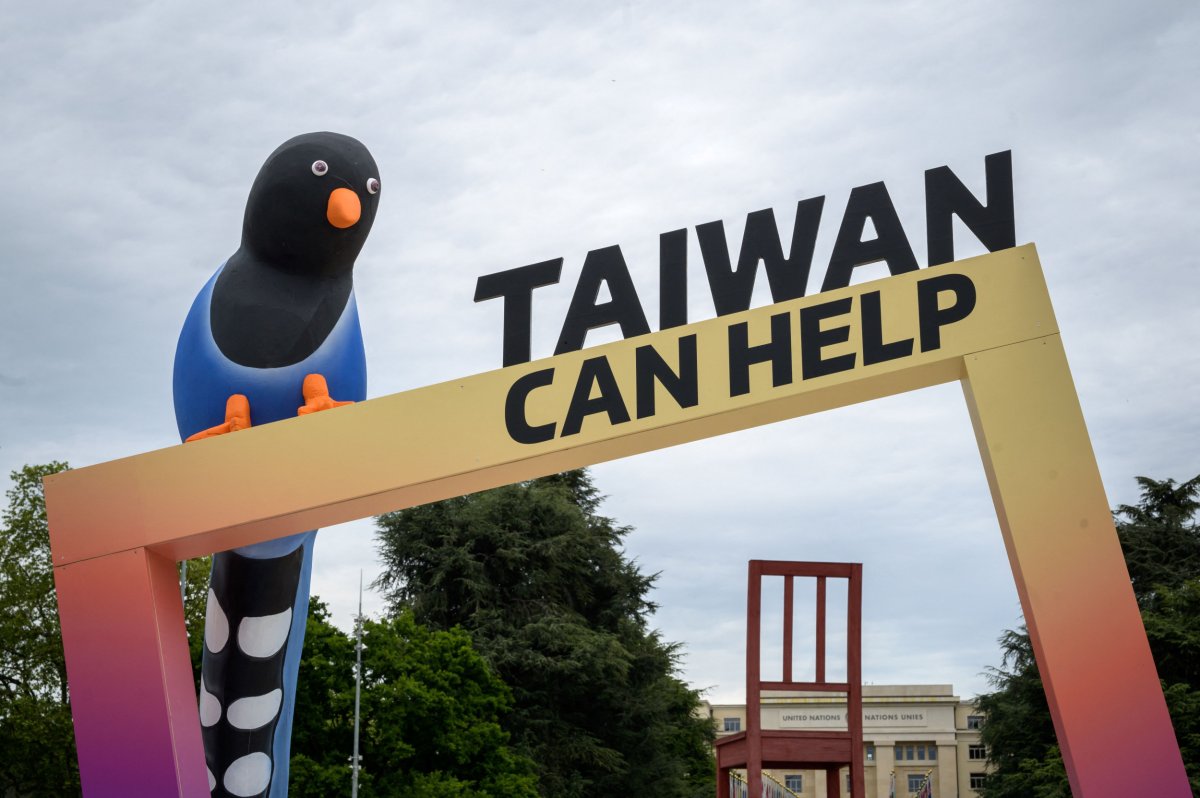Chinese leader Xi Jinping took subtle digs at the United States in a speech on Monday while his diplomats lodged formal complaints with the Biden administration for attempting to assist Taiwan's future participation at the United Nations.
"China has consistently pursued an independent foreign policy of peace, upheld justice and resolutely opposed hegemonism and power politics," he said, stopping short of naming the U.S.
"International rules can only be made by the 193 UN Member States together, not decided by individual countries or blocs," Xi added, after hailing Beijing's "major contributions to human rights progress" in China and abroad. He said China would "stay committed to the path of peaceful development and always be a builder of world peace."
Xi spoke at length to mark half a century of the People's Republic of China at the UN, following the expulsion of the Republic of China leadership from the global governing body on October 25, 1971. The reassignment of the "China" seat came after the passage of UN General Assembly Resolution 2758, which recognized the PRC but said nothing of the status of Taiwan, which has governed itself for more than seven decades.
Under this backdrop, Taipei—backed by Washington—has sought "meaningful participation" at the UN and its specialized agencies, such as the World Health Organization. Beijing, which considers Taiwan one of its provinces, has pushed back every step of the way, claiming the island has no right to take part due to its lack of formal statehood.
Over the weekend, the State Department revealed that American and Taiwanese officials had convened for high-level discussions on Friday that "focused on supporting Taiwan's ability to participate meaningfully at the UN and contribute its valuable expertise to address global challenges."
The U.S., which has unofficial relations with Taiwan, doesn't take a position on the island's sovereignty. It argues that the international community stands to gain from Taiwan's knowledge in areas including public health and climate change.
Throughout Monday, Taiwanese President Tsai Ing-wen thanked the U.S. for its support in expanding Taiwan's international participation, before State Department spokesperson Ned Price told reporters at a press briefing: "This administration believes Taiwan, as a leading democracy, has a lot to offer to the world on these key challenges, including within international fora."
The public backing was met with fierce opposition from China, whose diplomats in Washington, D.C, said the Chinese were "gravely concerned" by the developments and had "lodged a solemn representation" with their American counterparts. In Beijing on the same day, China's Foreign Ministry spokesperson Wang Wenbin urged the U.S. to "stop official contact with Taiwan."
Friday's U.S.-Taiwan meeting involved the State Department's deputy assistant secretary for China, Taiwan, and Mongolia, Rick Waters, and Deputy Representative Wang Liang-yu of the Taipei Economic and Cultural Representative Office—Taiwan's de facto embassy in Washington.
Both took part in an event hosted by the German Marshall Fund (GMF) think tank last week, in which Waters said the PRC had "misused" Resolution 2758 to prevent Taiwan's participation at the UN.
After Bonnie Glaser—director of GMF's Asia Program—noted the Chinese view that Taiwan's participation at the UN was intended to promote the island's de jure independence, Waters said: "We simply don't agree."
The official said the U.S. sees it as "a logical activity that is worthy of our support."

Uncommon Knowledge
Newsweek is committed to challenging conventional wisdom and finding connections in the search for common ground.
Newsweek is committed to challenging conventional wisdom and finding connections in the search for common ground.
About the writer
John Feng is Newsweek's contributing editor for Asia based in Taichung, Taiwan. His focus is on East Asian politics. He ... Read more
To read how Newsweek uses AI as a newsroom tool, Click here.








